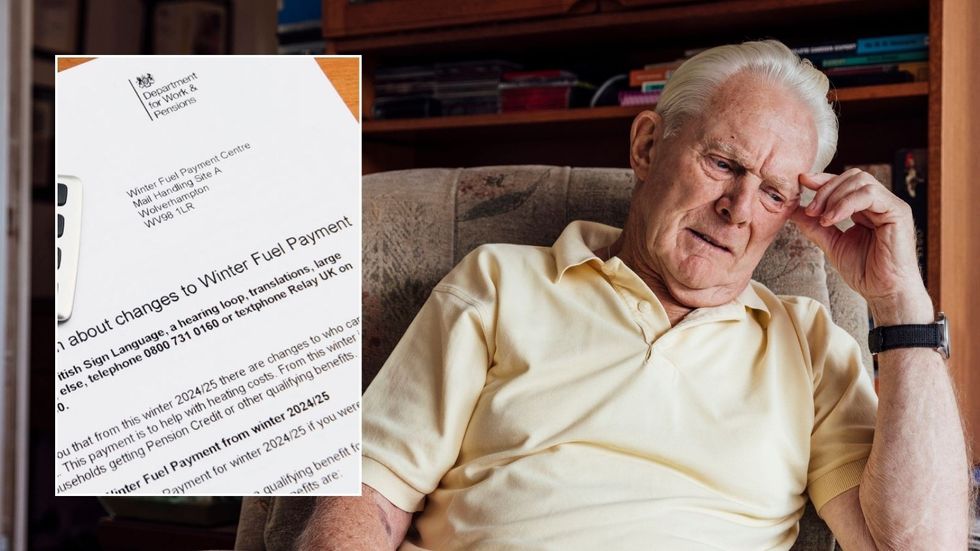Winter Fuel Payment eligibility warning as pensioners lose over £14,000 to scam

More than 300 scams were reported in six months, as fraudsters exploit confusion over new eligibility rules
Don't Miss
Most Read
Fraudsters have stolen more than £14,000 from pensioners through Winter Fuel Payment scams following Labour's controversial changes to the benefit scheme.
Action Fraud recorded 323 incidents between October and March, with victims losing a total of £14,459.
The surge in fraudulent activity came after Rachel Reeves initially restricted the allowance to only the poorest pensioners.
Scammers have exploited the confusion surrounding eligibility criteria to target vulnerable elderly people with fake messages.

Scammers have exploited the confusion surrounding eligibility criteria to target vulnerable elderly people with fake messages
| PA/GETTYThe fraudulent texts have intensified again this past week after the Chancellor announced revised eligibility rules, prompting fresh warnings from authorities about the sophisticated deception tactics being employed.
Under the revised scheme, nine million pensioners with incomes at or below £35,000 will now receive the payment automatically this winter. The government estimates this covers just over three-quarters of all pensioners.
The remaining two million pensioners with taxable incomes exceeding the threshold will not receive the benefit.
Those above the limit who do receive payments will have them clawed back through the tax system.
Crucially, eligible pensioners need take no action whatsoever. The Department for Work and Pensions has confirmed that payments will be made automatically, meaning any text message requesting applications or bank details is fraudulent.
The scammers employ sophisticated tactics to deceive their targets.
One fraudulent message seen by authorities claimed: "Your account shows that you are eligible to apply for an Energy Allowance for 2024-25 up to a maximum of £300. Please complete the submission process by June 20th. Late applications will be void."

Many texts create false urgency by claiming imminent deadlines
| GETTYAnother example shared by Cheshire West and Chester council urged recipients to submit applications by 10 June, requesting they reply "yes" to activate a malicious link. The fake DWP messages typically demand bank details and personal information.
Many texts create false urgency by claiming imminent deadlines, despite the legitimate payment requiring no action from pensioners.
One pensioner shared her harrowing experience on social media: "I'm absolutely furious! I have just been the victim of a scam targeting older people."

Britons are urged to remain vigilant and check on vulnerable neighbours and relatives to ensure awareness of the deception
| GETTYShe described receiving a text demanding payment details and a £1 test transaction, narrowly avoiding financial loss by cancelling her cards promptly.
Stuart Bingham, Cheshire West and Chester council cabinet member for community safety, warned: "This latest scam appears timed to coincide with the chancellor's announcement this week of the changes to the winter fuel payment, extending the eligibility criteria."
He urged residents to remain vigilant and check on vulnerable neighbours and relatives to ensure awareness of the deception.
More From GB News









